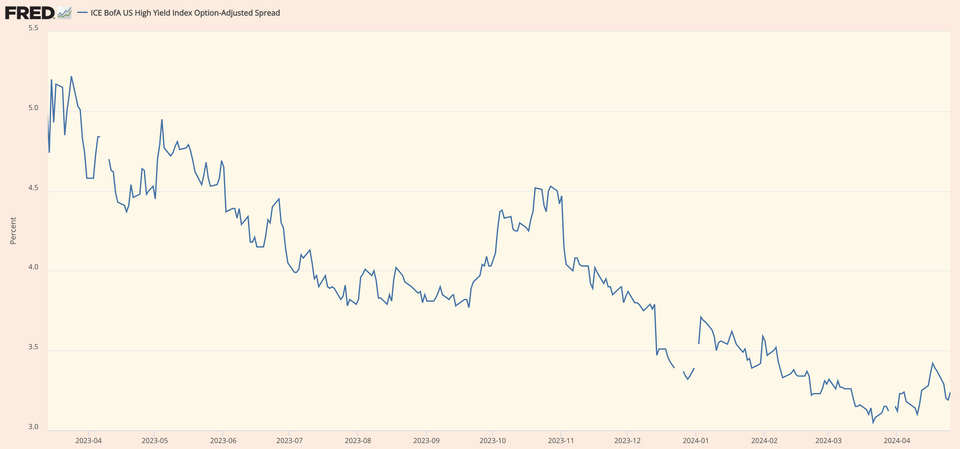Corporate Credit Spreads Remain Tight

Sign up for Global Macro Playbook: Stay ahead of the curve on global macro trends.
Corporate credit spreads widened slightly during the last weekly period, but remained tight overall. This indicates that market participants remain confident in the creditworthiness of borrowers and view the overall economy favorably, according to a report by Moody's Analytics.
Moody's Ratings long-term average corporate bond spread to the 10-year U.S. Treasury increased 2 basis points to 109 bps, while the long-term average industrial bond spread expanded 1 bp to 94 bps. However, these spreads remain below their 12-month lows.
In contrast, low-grade credit spreads narrowed considerably during the last weekly period. The report observes that the US Bloomberg/Barclays high-yield option-adjusted spread contracted to 307 bps from 329 bps, while the ICE BofA U.S. high-yield option-adjusted bond spread closed at 319 bps, down 23 bps from the previous week.
This narrowing of low-grade credit spreads suggests that investors are becoming more optimistic about the financial health of below-investment-grade companies. The average high-yield spread during recent recessions has been 1,000 bps, while the average spread outside of recessions has been 350 bps. The current spread of 319 bps is significantly lower than both of these averages.
The VIX index, a measure of market volatility, also declined last week, falling to 16 and below its long term average. This indicates that investors are becoming less fearful about the future direction of the stock market.
"In the past, there has been a significant correlation between credit spreads and equity market volatility," says Moody's Analytics. "This relationship was disrupted in recent years, but the decline in the VIX last year by 42.5% to the average of 17 has brought it back generally in line with high-yield spreads."
Overall, the slight widening of corporate credit spreads, combined with the narrowing of low-grade credit spreads and the decline in the VIX index, suggest that the market remains optimistic about the economy and the creditworthiness of borrowers.